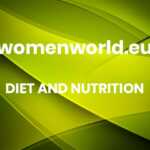Ahhh, Vitamin D – the free vitamin we all get from the sun… and from salmon, sardines, tuna (canned or not), egg yolks, mushrooms – the list goes on and on.
Now, why does it matter? While it’s important for several systems and functions in your body, its key role is centred around helping the body absorb calcium and it’s essential for the development of strong bones.
The prevalence of vitamin D deficiency (VDD) is quite high globally with an estimated 1 billion people world-wide being affected by it.
What’re the benefits?
Nutritional consultant Vanessa Ascencao explains that the popular D vitamin helps regulate calcium and phosphate which are needed for strong bones, teeth and muscles.
“However, research on this vitamin has increasingly shown its positive impact on immunity, including a study which found it to be a powerful immune-generator,” Ascencao tells us.
“Low levels of vitamin D have been linked to an increased risk of death from cardiovascular disease, cognitive impairment, depression and fatigue, often getting sick with colds and flu, respiratory tract infections like bronchitis and pneumonia, impaired wound healing, weight gain, hair loss and muscle pain.”
8 Signs You Need To Be Getting More Vitamin D Into Your Daily Diet
She further explains that other research shows that vitamin D supplementation may lower the risk of cancer by 16%, help relieve symptoms of Irritable Bowel Syndrome (IBS) and slow the progression of HIV in infected individuals.
With all of this said, it’s also important to note that while there is very strong evidence that the sunshine vitamin is essential for bone health, other evidence around the conditions it prevents or worsens hasn’t yet reached a definitively conclusive stage.
Link to COVID-19
We know that certain conditions can leave you at a higher risk of contracting the novel coronavirus, and now VVD is having its moment in this spotlight. This comes after researchers from Trinity College Dublin released a study that suggests that the vitamin helps support the immune system through several pathways that are involved in fighting off SARS-CoV-2.
“Whereas there are currently no results from randomised controlled trials to conclusively prove that vitamin D beneficially affects COVID-19 outcomes, there is strong circumstantial evidence of associations between vitamin D and the severity of COVID-19 responses, including death,” Prof. Rose Kenny, co-author of the study, said in a statement.
Essentially, even though it’s beneficial for a number of other things – this study is suggesting that using vitamin D supplements, particularly if you know that it’s been an issue for you, could be beneficial in lowering the severity of a COVID-19 infection.
“There is a strong plausible biological hypothesis and evolving epidemiological data supporting a role for vitamin D in COVID-19,” the study concluded.
Now, we know that spending some time in the sun is one way to get some – but what other strategies can you include?
Can I get it via food?
According to a research paper published in the , 90% of vitamin D is synthesised in the skin through exposure to ultraviolet radiation – making the most common cause of the deficiency a lack of exposure of skin to sunlight.
With this said, it’s still important to also incorporate the vitamin into your diet. Ascencao says that a more holistic approach paired with a vitamin D rich diet is key.
7 Serious Health Problems Caused By A Lack Of Vitamin D
“The focus should be on good health and boosted immunity,” she says.
“Consider a holistic approach, including eating an abundance of nourishing foods such as fruit and vegetables, fatty fish, flaxseeds, olive oil, and nuts and seeds.” And salmon, sardines, tuna (canned or not), egg yolks, mushrooms, fortified orange juice and Cheddar cheese.
What about supplementation?
Interestingly, another South African study estimated that over half of South Africans could be deficient in vitamin D, while another study showed that Africa could have the highest frequency of severe VDD in the world.
“Despite the view that there is extensive sunshine in Africa, supplementation is still important,” Ascencao says. “It’s important that you go for high quality supplements with good absorption.”
According to , even though some of the research on vitamin D is not very definitive and often a cause for fierce debates in medical communities, some people will truly benefit from its supplements. It’s just important for those individuals to make sure that they are not taking large amounts as this can make things worse. Moderation is key.
They also recommend that you choose food over pills.
“If possible, it’s better to get your vitamin D from food sources rather than supplements. Choose fortified dairy products, fatty fish and sun-dried mushrooms.”
And lastly, so many people are on vitamin D supplementation and haven’t alerted or spoken to their doctor about it – this is vital. Your doctor will be able to help you determine if you’re taking too much or too little based on how much you actually need it.



